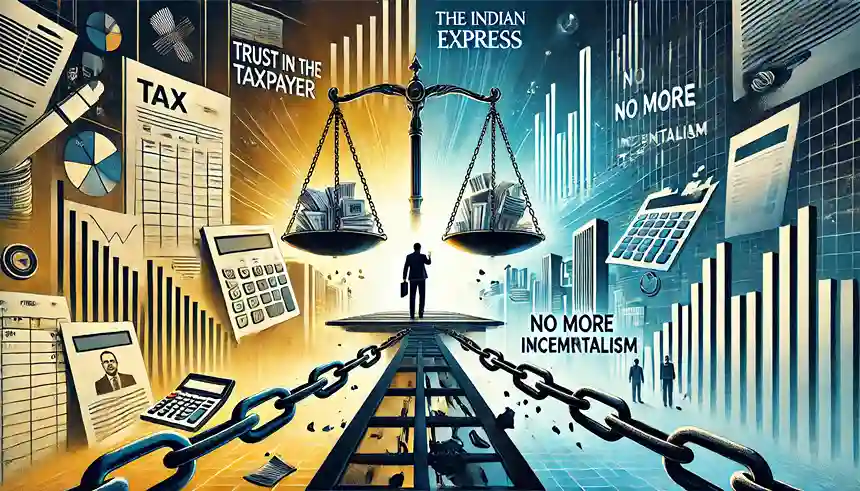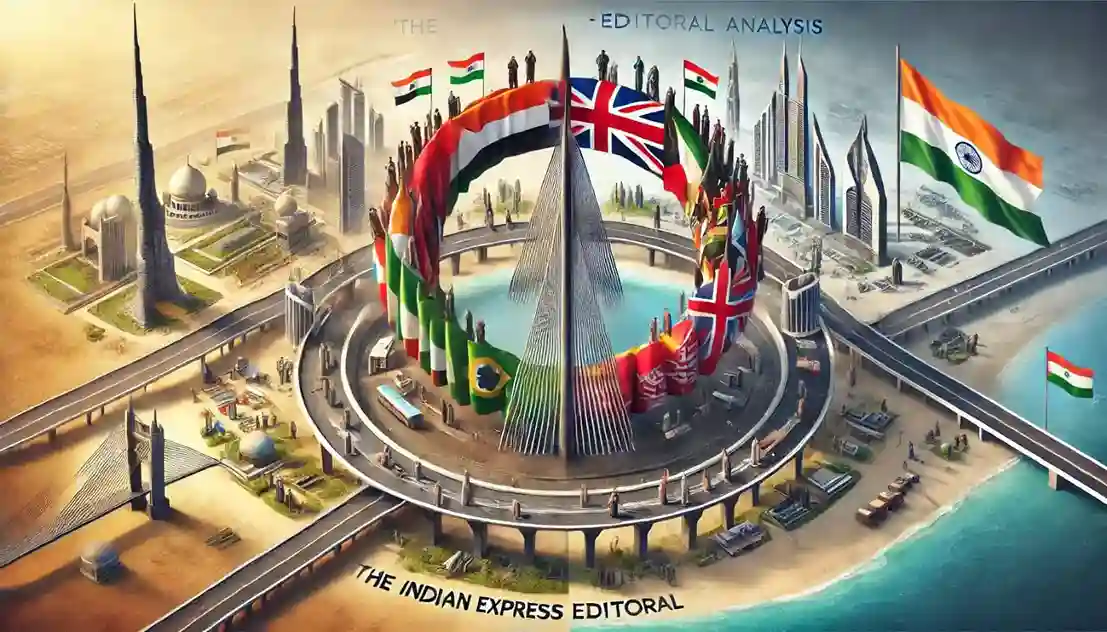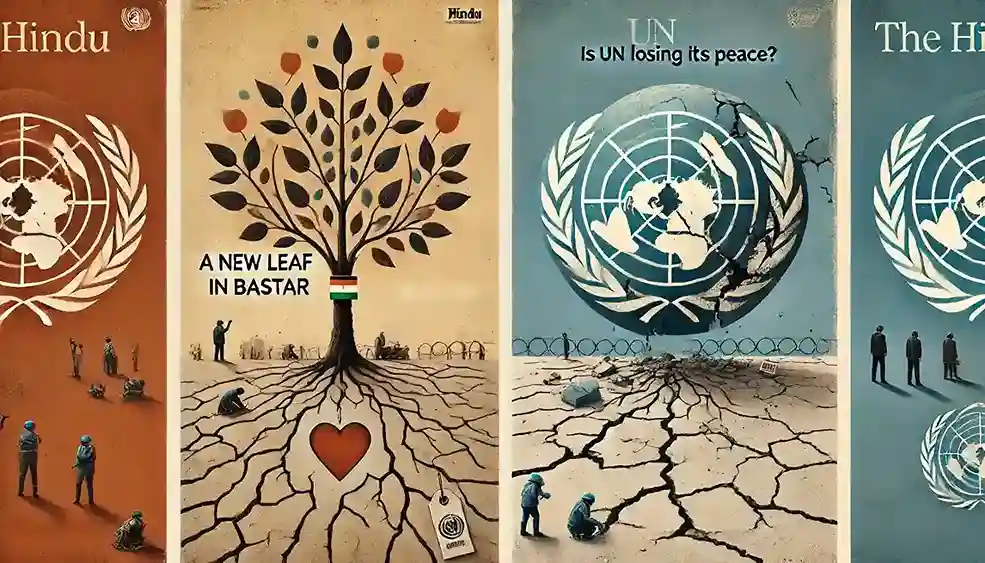Analysis of The Hindu Editorial 1: The world needs blue helmets who act as blue helmets
Context
As conflicts rage across the globe, the United Nations (UN) risks losing its credibility as a peacekeeper, slipping into the role of a passive observer. Despite its mandate to maintain peace, the organization has, at times, failed to intervene decisively, undermining its core mission of “enforceable peacekeeping.”
Introduction
Yehuda Bauer, a historian of the Holocaust, once emphasized: “Thou shalt not be a victim, thou shalt not be a perpetrator, but, above all, thou shalt not be a bystander.” This quote underscores the responsibility of those who witness atrocities to act. Today, the UN must reflect on this message as it navigates its role in global conflicts. Through Chapters VI and VII of its Charter, the UN is tasked with settling disputes peacefully and, when necessary, using force to restore peace. Chapter VIII further emphasizes the use of regional forces in coordination with the Security Council to maintain stability. Yet, the UN’s effectiveness in fulfilling this mandate has come into question.
The Challenges of UN Peacekeeping: Successes and Setbacks
The UN’s reputation as a peacekeeper has been both praised and criticized over the years. Here’s a breakdown of its achievements and challenges:
| Achievements | Challenges |
|---|---|
| Effective Peace Missions: The UN has helped maintain stability in places like Cambodia, Mozambique, Sierra Leone, Angola, and Liberia. Its efforts in these regions have been a testament to the potential of international cooperation. | Instances of Inaction: In tragic events like the Rwanda genocide (1994) and the Bosnian conflict (1995), the UN faced harsh criticism for failing to prevent mass atrocities, becoming a passive observer rather than an active peacekeeper. |
| Restoration of Core Values: In more recent missions such as those in Darfur, South Sudan, and the Democratic Republic of Congo, the UN has made civilian protection a priority, drawing on past experiences to improve its peacekeeping efforts. | Erosion of Authority: In the past few years, especially during conflicts in Ukraine and West Asia, the UN’s ability to enforce peace has diminished, raising questions about its relevance in contemporary global politics. |
- Analysis of The Indian Express Editorial – February 13, 2025

- Analysis of The Indian Express Editorial – February 12, 2025

- Analysis of The Indian Express Editorial – December 31, 2024

- Analysis of The Indian Express Editorial – December 19, 2024

- Analysis of The Indian Express Editorial – December 18, 2024

The UN’s Inadequate Response to Emerging Conflicts
Recent global crises, including Russia’s invasion of Ukraine and the Israel-Gaza conflict, have highlighted the UN’s inability to act decisively. Despite having over 100,000 peacekeepers at its disposal, the organization has struggled to deploy them effectively in these crisis zones.
- Failure to Act Decisively: The UN has not taken clear, forceful steps to protect civilians in Ukraine or Gaza, despite the availability of significant peacekeeping resources. The lack of intervention has allowed these conflicts to escalate, leading to widespread destruction and loss of life.
- Missed Opportunities: With a robust force ready for deployment, the UN could have strategically repositioned some troops from existing missions to stabilize regions like Ukraine or Gaza. Past precedents, such as the successful deployment of peacekeepers in Timor Leste and Cyprus, demonstrate that such actions could have significantly mitigated the suffering of civilians.
A Missed Opportunity for Decisive Action
The presence of well-equipped UN troops across the globe implies a responsibility to intervene wherever civilian lives are at risk. However, recent events have shown that these forces often remain idle, missing critical chances to prevent humanitarian crises.
- The Role of Peacekeepers: Peacekeepers must embody the principles they represent, acting with neutrality and authority, as seen in past operations in Kosovo and Timor Leste. A similar deployment in the Israel-Gaza region could have potentially curbed the bloodshed and prevented further escalation.
- Potential Impact: Even a limited deployment of peacekeepers in conflict zones like Gaza could create buffer zones, protecting civilians and preventing further loss of life. It’s a stark reminder that the UN’s resources, if used wisely, can make a tangible difference.
The Urgent Need for Security Council Reforms
A key barrier to the UN’s effectiveness is the structure of its Security Council, particularly the veto power held by the five permanent members (P5). This power has often been used to block interventions, even when urgent humanitarian action is needed.
- The Problem with the Veto: The P5’s ability to veto resolutions has frequently stymied efforts to intervene in conflicts, as seen during the Rwanda genocide. Reforming this system could prevent future inaction in critical situations.
- Expanding Permanent Membership: Including new members like India and South Africa in the Security Council could bring fresh perspectives and better representation of the global South. A reformed Council could make decisions more democratically, ensuring a more balanced approach to global peacekeeping.
- [PDF] Kiran SSC 10600+ General Awareness Book English
![[PDF] Kiran SSC General Awareness Book English](https://savepdf.in/wp-content/uploads/2024/12/PDF-Kiran-SSC-10600-General-Awareness-Book-English-1156x650.webp)
- [PDF] – Manorama Yearbook 2025: A Comprehensive Guide to Knowledge and Exam Success

- [PDF] Blackbook 25000+ GA English Medium
![[PDF] Blackbook 25000+ GA English Medium](https://savepdf.in/wp-content/uploads/2024/11/PDF-Blackbook-25000-GA-English-Medium-1156x650.webp)
- [PDF] Reasoning Made Easy – Download Now
![[PDF] Reasoning Made Easy](https://savepdf.in/wp-content/uploads/2024/11/Reasoning-Made-Easy-1156x650.webp)
- [PDF] Police Recruitment Challenger – Download Now
![[PDF] Police Recruitment Challenger](https://savepdf.in/wp-content/uploads/2024/11/Police-Recruitment-Challenger-1156x650.webp)
A Vision for the Future: Revitalizing UN Peace Operations
Reforming the Security Council is only one step towards revitalizing the UN’s role in global peacekeeping. Here’s a proposed way forward:
| Proposed Reforms | Potential Impact |
|---|---|
| Restructured Veto System: Shifting from individual vetoes to a majority-based vote among a P7 could ensure more balanced decisions in crisis situations, allowing the UN to act decisively in conflicts like those in Ukraine and Gaza. | Enhanced Decision-Making: A more inclusive and democratic voting system could empower the UN to deploy peacekeeping forces swiftly, preventing humanitarian crises from spiraling out of control. |
| Flexible Deployment of Troops: Allowing the rapid redeployment of peacekeepers between missions, as authorized under Chapters VII and VIII, would enable the UN to respond to emerging threats more effectively. | Greater Operational Flexibility: This could transform the UN’s standing forces into a truly global force for peace, ready to act wherever conflict threatens civilian lives. |
Conclusion: A Call for the UN to Reclaim Its Role
If the United Nations is to remain relevant, it must reclaim its role as an enforcer of peace, not merely a passive observer. With its resources and global mandate, the organization has the potential to make a significant impact in the world’s most dangerous conflicts. Without a shift towards decisive action and strategic reforms, the UN risks becoming a forum for discussions rather than a force for change. It’s time for the world to see the blue helmets not just as symbols of peace, but as active guardians of global stability.
- [PDF] “Arihant Computer Awareness Book 1” – Free Download
![[PDF] Arihant Computer Book.pdf” – Free Download for Competitive Exams](https://savepdf.in/wp-content/uploads/2025/04/PDF-Arihant-Computer-Book.pdf-–-Free-Download-for-Competitive-Exams-1040x650.webp)
- [PDF] The Pragmatic Programmer by David Thomas and Andrew Hunt

- [PDF] Structure and Interpretation of Computer Programs
![[PDF] Structure and Interpretation of Computer Programs](https://savepdf.in/wp-content/uploads/2024/12/PDF-Structure-and-Interpretation-of-Computer-Programs-1157x650.webp)
- [PDF] Computer Fundamentals by Anita Goel – Free Download
![[PDF] Computer Fundamentals by Anita Goel – Free Download](https://savepdf.in/wp-content/uploads/2024/11/Computer-FundameComputer-Fundamentals-by-Anita-GoelComputer-Fundamentals-by-Anita-Goelntals-by-Anita-Goel-1156x650.png)
- [PDF] – Mainframe Systems Programming: An Introduction – Download Now
![Mainframe Systems Programming: An Introduction – [PDF]](https://savepdf.in/wp-content/uploads/2024/10/PDF-–-Mainframe-Systems_20241004_162243_0000-1156x650.webp)
Analysis of The Hindu Editorial 2: Working toward a meaningful ‘victims’ register’ in Bastar
Context
Creating a ‘victims’ register’ has proven effective in conflict resolution in various parts of the world, and now India looks to apply this approach in Bastar, a region plagued by left-wing extremism. This initiative must be driven by a commitment to truth and reconciliation, focusing on healing rather than division.
Introduction
On September 20, 2024, India’s Union Home Minister met with 55 individuals affected by Naxalite violence in Chhattisgarh’s Bastar region. This meeting, covered by the press with headlines like “Surrender arms and join mainstream, or face action, Amit Shah tells Naxals,” highlights the critical focus on left-wing extremism in this area. Bastar, a hub for such activities, comprises the districts of Bastar, Narayanpur, Bijapur, Kondagaon, Sukma, Dantewada, and Kanker. It has been the stage for both successful security operations and ongoing violence.
A Step Towards Change: Government’s Renewed Approach
The Home Minister’s engagement with victims of violence marks a significant shift, especially when considered alongside recent successes in counter-Maoist operations.
- Commitment Beyond Law Enforcement: The meeting signals that the government is addressing the Maoist challenge with a broader perspective, one that goes beyond mere security operations. This comprehensive strategy includes:
- Strengthening security measures.
- Promoting development in conflict-affected areas.
- Ensuring the rights of local communities.
- Improving governance.
- Managing public perception.
- Acknowledging Victims’ Needs: This approach gains further support from statements by Chhattisgarh’s Deputy Chief Minister and Home Minister, Vijay Sharma, who emphasized the need for a more effective victims’ register earlier this year. This alignment between state and central policymakers offers hope for a sustainable resolution to the violence in Bastar.
Understanding the Diverse Victims of Conflict
The term “victim” is not one-size-fits-all, especially in a region like Bastar where many groups have been caught in the crossfire. Here, it’s crucial to recognize the varied experiences of those affected:
| Category | Description |
|---|---|
| Victims of Maoist Violence | Those who have suffered directly from Maoist attacks and violence, including many who met with the Home Minister. |
| Victims of State Actions | Those affected by state actions, including security operations and criminal justice processes, either intentionally or as collateral damage. |
| Impact of Vigilante Groups | Victims of vigilante forces like the Salwa Judum, a militia active in the mid-2000s, which led to displacement and violence against tribal communities. |
| Internally Displaced Tribals | About 55,000 tribals fled to Andhra Pradesh for safety during the Salwa Judum era, many of whom still long to return home. |
| Victims of Structural Violence | Those who have endured systemic neglect and exploitation, dating back to colonial times and continuing through the state’s absence in these regions. |
Historical Roots of the Conflict
The roots of this conflict run deep, intertwined with the history of neglect and exclusion faced by tribal communities:
- A Legacy of Neglect: For centuries, the tribal populations of Dandakaranya—a vast region spanning parts of Chhattisgarh, Odisha, Telangana, Andhra Pradesh, and Maharashtra—have faced systemic exclusion. The absence of meaningful governance created a power vacuum that the Maoists exploited, positioning themselves as defenders of tribal rights.
- Maoists’ Appeal: Initially, the Maoist movement tapped into this sense of neglect, advocating for the rights of tribals against what they saw as exploitation by the state. This historical context adds layers of complexity to the present-day conflict.
Moving Forward: A Strategy for an Inclusive Victims’ Register
Building a comprehensive ‘victims’ register’ in Bastar, as envisioned by Mr. Sharma, has the potential to bring about lasting change for those affected by the conflict.
- Learning from Global Examples: This initiative is not without precedent—similar efforts have helped resolve long-standing conflicts in countries like Colombia. The key lies in a process that genuinely aims for truth and reconciliation, rather than assigning blame.
- Focusing on Truth and Reconciliation: For the register to succeed, it must embrace the stories of all victims, regardless of who perpetrated the violence. A balanced approach can foster healing, whereas a biased one risks deepening societal divisions.
| Key Aspects of the Victims’ Register | Potential Impact |
|---|---|
| Inclusive Storytelling | Recognizing the stories of all affected groups helps create a balanced historical record, fostering trust among communities. |
| Trust-Based Process | Giving victims the benefit of the doubt in sharing their experiences builds a foundation of mutual respect and understanding. |
| Focus on Long-Term Peace | By addressing historical grievances and current realities, the register can lay the groundwork for lasting peace and stability in Bastar. |
Conclusion: A Path to Rebuilding Trust
The success of the victims’ register hinges on trust—trust between the government and its people, and between communities that have been torn apart by decades of conflict. By focusing on this trust-based approach, the register can serve as a powerful confidence-building measure, helping the state win the hearts and minds of those who have suffered. It’s time to acknowledge the aspirations of tribal communities, ensuring they are no longer caught between opposing forces. As Maoist influence wanes, this is the moment to chart a new course towards peace and reconciliation in Bastar.

